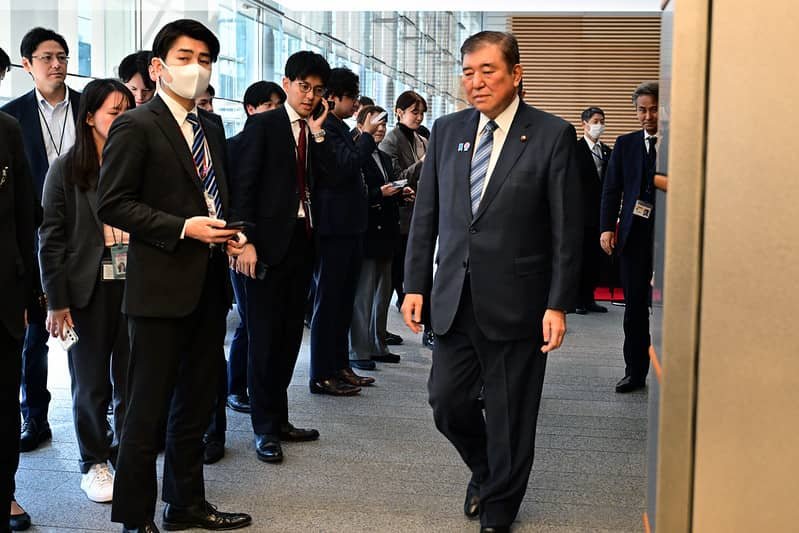- Pound-to-Yen is higher at 198.68
- Euro-to-Yen is flat at 172.32
- Dollar-to-Yen is higher at 146.81

File image of Shigeru Ishiba. Photo Credit: Dean Calma / IAEA. Licensing: CC 2.0.
Good news on a trade deal overshadowed by debt concerns.
Japan has struck a new trade accord with the U.S., which has bolstered stock values in Toykyo, however the Yen didn’t receive the memo.
Instead, the Japanese currency languishes at the bottom of the G10 currency performance board, fretting about the status of the country’s Prime Minister.
Reports suggest Shigeru Ishiba will soon resign following his party’s poor showing in weekend elections, which would be consistent with precedent.
His Liberal Democratic Party, in power for most of the past 70 years, lost its coalition majority in elections to Japan’s upper house, the House of Councillors, on Sunday. It lost its majority in the more powerful lower house, the House of Representatives, last year.
On Monday, the market speculated he might try to extend his tenure, citing the need for stability, particularly given the importance of the trade reset underway with the U.S.
The development, and a bit of “buy the fact” price action, supported the Yen.
But Tuesday’s U.S.-Japan trade accord seems to make this argument more tenuous, and his departure is now very likely.
“The USDJPY and Japanese government bonds declined as fiscal concerns and reports of Prime Minister Shigeru Ishiba stepping down soon,” says Min Joo Kang, Senior Economist for South Korea and Japan at ING Bank.
Above: JPY performance on July 23.
The issue for markets is that this paves the way for the formation of a multi-party governing setup in Japan that will lean towards a more lax tax and spending paradigm, which would put the country’s finances under pressure.
“A change of leadership at the LDP, and the PM, following Sunday’s election drubbing, could result in another dollop of fiscal support,” says Kenneth Broux, a strategist at Société Générale.
This would come as Japan exits a multi-decade period of deflation. The reinflating economy, combined with a rising fiscal risk premium results in waning demand for Japan’s long-dated bonds: ten year has fallen to 99.24 and its yield has spiked to 1.589%.
That yield is near its highest level since 2008, meaning the government will find it costlier to issue and finance debt.

Above: Ten-year Japanese government bond yields.
Usually, rising bond yields would boost a currency, particularly so the Yen which has for years been weighed down by Japan’s low yields.
But, as Pound Sterling has found out in recent times, when yields rise on concerns about fiscal dynamics, the currency can tend to struggle.
Also, we need to take into consideration that the news of a U.S.-Japan trade accord is proving very supportive of Japanese and global stocks.
This positive sentiment tends to traditionally weigh on the Yen, so there are a few factors to consider when viewing the currency’s performance.
Just to crowd the field a little further is the Bank of Japan, where the deputy governor, Shinichi Uchida, on Wednesday said there was no rush to raise interest rates.
“Under the premise that the outlook for economic activity and prices comes with uncertainty, the bank needs to adjust monetary policy to best balance the upside and downside risks,” he told local business leaders in Kochi.
“A dovish BoJ and the large investments in the US will probably weigh on the JPY. We still believe that once the Fed begins to cut its rates and the BoJ hikes, conditions will turn to favourable for the USDJPY. In the short term, though, JPY should experience depreciation pressures,” says ING’s Min Joo Kang.






















